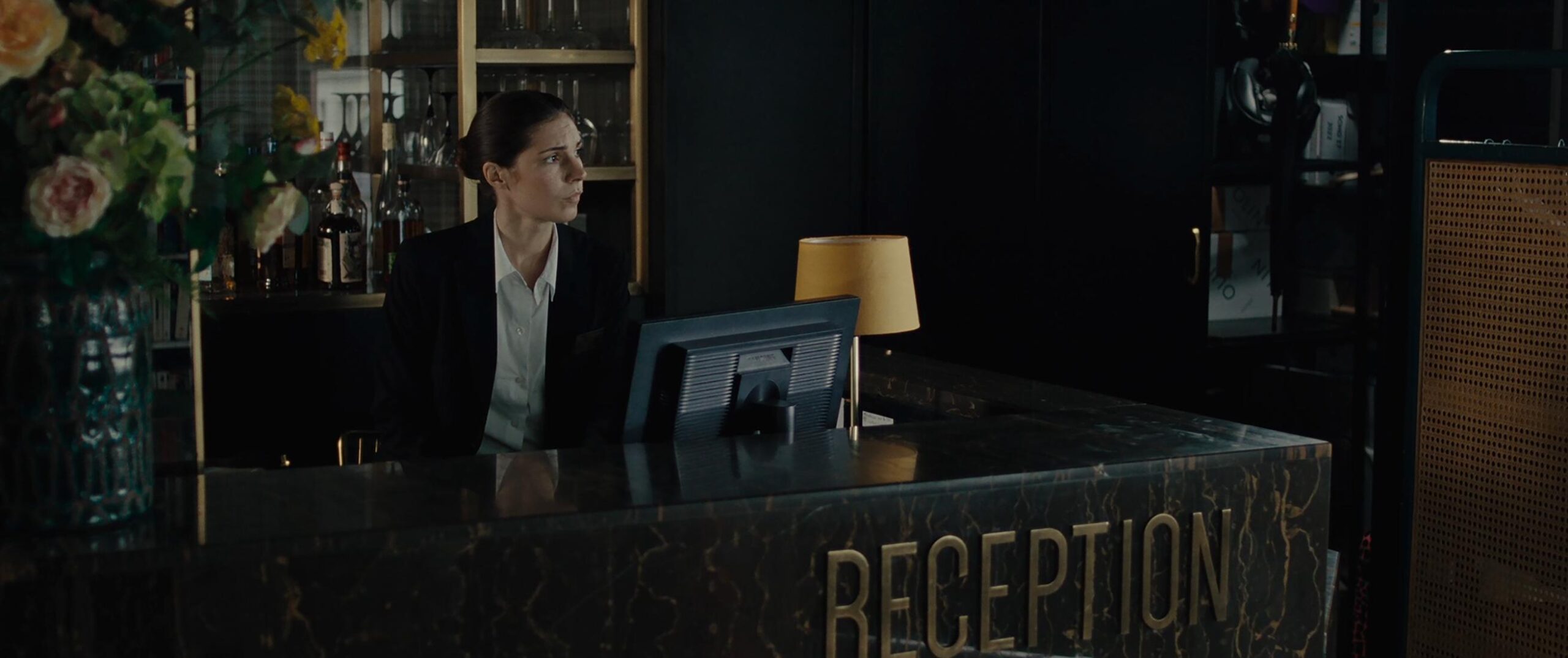DEAD TOOTH
dir. Romane Eilahtan

Is horror absolutely more chic in French? In “Dead Tooth,”, we follow beautiful and skittish Tara (Tara Lindström) on the day she has a dentist appointment. The young woman leaves the workplace where she is bullied by her colleague (Inès Boukhelifa), and in the hectic streets of the city, she is knocked down and yelled at by rude, well-dressed Parisians. As soon as she gets into the dentist’s office, the receptionist (Norhloda Terrak) greets her in a dismissive and aggressive manner. Before you know it, two other clients cut in front of her in line. One of them, a man (Benoît Borkine), flirts with her manically and then abruptly stops when he sees her dead tooth. One disaster leads to another, and by the time Tara sees the dentist she is covered in her own blood and is in great distress. As you can guess, the dentist appointment itself will kick this short into real horror gear.
This film is incredibly slick and has high production value. The acting is hilarious in its vulgarity. The cast consists almost entirely of women, and they are all stunning, with a biting character. Director of Photography Florent Stramboli displays an impressive mastery, and composer Cello Solo Yann gets the credit for making this piece stressful, yet elegant. This is not an overwhelming type of horror film. Some scenes, the last one in particular, are very long and contemplative. This is not a fast-paced knee-jerker. What is scary about it is the way the film makes space to observe the physical and verbal brutality of the stagnant characters.
Yet, what places Romane Eilahtan, the writer/director, as an unusual horror filmmaker is their ability to create such an arc for Tara’s character. This short is really about a young woman who just won’t take any more bullying; after the dentist injures her badly, Tara transforms. She sheds her submissive self and turns into a raging, cheerful killer. And in a magical way, as day turns to night, all the tyrants from earlier in the film witness Tara all covered in blood, frightening yet lighthearted, with a smile pushed even wider by the cheek retractor left in her mouth. Eilahtan has the skill to shed light not just on bullying in a general sense, but also on arrogance and toxicity between women. Therefore, we are situated in a specific culturally – and gender-coded violence. The female characters around Tara are disrespectful to her time, take her food and objects from her, ignore her injuries, insult her in a highly misogynistic manner, and eventually harm her physically. I would argue that in the current political climate, this type of violence does not get enough recognition, and Eilahtan takes issue with that.
It is no coincidence that the film ends with Tara pulling out her dead tooth, replacing the care she was meant to get from others with a sort of twisted self-care. She has liberated herself from being a pushover, and to dispose of that identity, she gets rid of the dead material that brought her to the edge in the first place. So who’s that gorgeous killer with a missing front tooth?
Alina Yakirevitch is Russian artist, filmmaker, and writer based in New York. She holds an MFA from Hunter College. Her work was shown in the Hauser and Wirth Gallery, New York; NADA Fair, New York, and NADA Miami. Recent shows include: “Tongue Tied Diver,” a solo show at All St Gallery, New York; “Frozen,” a two-person show with Anna Sofie Jespersen at All St Gallery, New York; “What is and What Should Never Be,” a two-person show with Martine Flör at Neuer Kunstverein Wien in Vienna, Austria; “Little Light of Mine,” a two-person show with Craig Jun Li at P.A.D Gallery, New York; “Fire Exit,” at 205 Hudson Gallery, New York; and “Swap Meet,” at P.A.D. Gallery at NADA Flea, New York.
